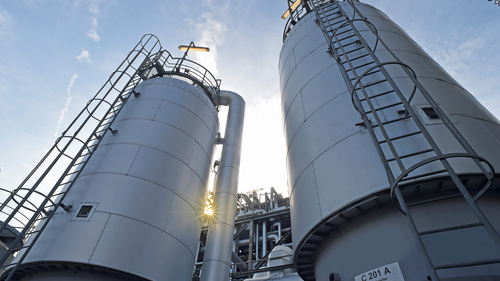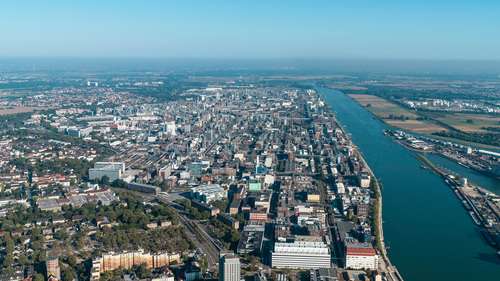BASF becomes first producer of renewable ammonia in Central Europe at Ludwigshafen, Germany
With two new renewable ammonia grades – renewable ammonia and renewable ammonia solution 24.5% – BASF further expands its sustainable product portfolio. BASF produces the renewable ammonia grades at its Verbund site in Ludwigshafen by feeding hydrogen into the ammonia plant which reduces the plant’s natural gas consumption.
In BASF’s Verbund, hydrogen is produced from fossil as well as from renewable energy-derived sources. Via a mass balance approach, renewable energy-derived hydrogen is attributed to the renewable ammonia grades. They have been certified according to ISCC+ and can be used as ‘drop-in’ solution in the same reliable way as the conventional products. The renewable ammonia grades are available in usual bulk mode.
“Our biggest goal is net zero of our products. With our renewable ammonia, we can significantly undercut the product carbon footprint (PCF) of our other low-CO2 ammonia grades”, said Dr. Jens Aßmann, Vice President Business Management Ammonia Value Chain and Operations Amino Resins at BASF. BASF calculates PCFs in accordance with the Together for Sustainability PCF Guideline.
The demand for low-carbon or “green” ammonia has constantly increased in the past years and is expected to still rise in the future. “Our customers, as well as BASF’s own downstream businesses, need low-carbon products already today to explore their market”, Aßmann emphasized. “We are proud to offer the first renewable ammonia produced in Central Europe with a very low PCF.”
The expansion of the ammonia portfolio is a further step on the sustainable journey of BASF’s Monomers division. The division has already developed one circular or low PCF option for every major product line by 2025. The division’s sustainable offerings are an essential part of BASF’s path to climate neutrality and net-zero CO2emissions by 2050.
Categories
Chemical substances
Latest news
INEOS launches €250m investment supported by the French Government to secure the future of French industry at Lavera
The project marks the first phase of a long-term regeneration plan to reduce emissions, boost reliability, efficiency and competitiveness, with support of the French State.
Hycamite’s technology to decarbonize shipping awarded AiP by industry leader DNV
Kokkola Industrial Park →Hycamite’s proprietary Thermo-Catalytic Decomposition (TCD) technology offers a new approach to producing clean hydrogen by breaking down methane, the primary component of liquefied natural gas (LN...
Clariant catalysts will power the Ecoplanta: Europe's first waste-to-methanol plant
Chemmed Cluster Tarragona →Repsol is building Europe’s first plant to produce renewable methanol from urban waste The facility will use Enerkem gasification technology to produce 240 KTA of methanol Clariant will supply cata...
Lilly plans to build a new $3 billion facility to boost oral medicine manufacturing capacity in Europe for patients worldwide
Netherlands site will bring 500 manufacturing and 1,500 construction jobs while further strengthening Lilly's global supply chain

